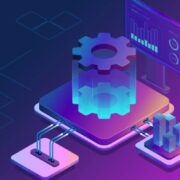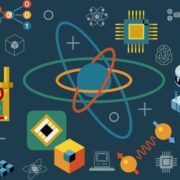Who hasn’t dreamed of living a healthier, less hectic life? Ten years ago, economist Mark Boyle began living without money. Two years ago he turned his back on all modern technology. We asked him what he had learned since he got rid of his “stupidphone” and logged off from all anti-social networks.
On the night before the 2016 winter solstice at around eleven p.m., I unplugged my laptop and turned off my phone, hoping it would be final. I had just finished a little straw-bale house that I built that summer on the half-overgrown one and a half acre lot I live on. The next morning I wanted to start a new life without modern technology: No running water, no fossil fuels, no clock, no electricity and nothing that needed electricity: no washing machine, internet, telephone, radio or lightbulb. I had no illusions that it would become the romantic rural idyll it is sometimes portrayed as. I wanted to live straight from the country, without a chainsaw, power tools or tractor.
The next morning I woke up with mixed feelings. On the one hand, I felt liberated, the way you feel when you reduce your life to the essentials and no longer have any bills to pay. On the other hand, I was tense because I was giving up everything I had ever known and practically breaking all bridges to the modern world. At the time I didn’t know: will I lose touch with reality or will I finally find it when I pull out the plug to the industrial world?
Life without money
Eight years earlier I had started living without money. This was originally planned as a year-long experiment with what anthropologists call “gift culture”. I wanted to see if it was possible and if so, how it looked and felt. It had not been an easy decision. As a business economist, I came to the sobering conclusion that at the center of our ecological, geopolitical, social and cultural misery was our extreme disconnection from the sources of what we consume. Money, I thought, allows us never to come into direct contact with the consequences of our consumption-oriented way of life. The greater the separation, the more room for abuse.
But while foregoing money certainly helped me break free from the clutches of predatory capitalism, I had not yet escaped industry. Back then I was using solar panels that powered some of the things that can only exist in a money-based, industrialized economy: LEDs, a laptop, and all kinds of tech. I was uncomfortable with that and slowly came to the conclusion that not only the money economy and capitalism were at the center of the meeting of the crises that lay before us. It was also the industrial society.
I don’t write much today about the reasons why I broke up with industrial civilization. This is partly because deep down we already know these reasons very well, and it is not for lack of information that we continue down this path. I could name a few: the mass extinction of species; Wars for raw materials; cultural imperialism; Climate catastrophe; comprehensive monitoring, standardization; the colonization of pristine and indigenous areas, the fragmentation of the community; the automation of millions of jobs, with the inevitable inequality and the resulting futility that provide demagogues with fertile ground from which to usurp power. The Rapid Decline in Mental Health; the rise in lifestyle diseases such as cancer, heart disease, diabetes, depression, autoimmune diseases, and obesity; the tyranny of fast, relentless communication and the addictive potential of shallow entertainment (movies, pornography, TV series, new products, celebrity gossip, online dating and 24/7 news) that exists behind our screens and whose goal is to monetize our distraction seems.
These concerns remain extremely important. But surprisingly, I noticed that my reasons were slowly changing over time. You now have less to do with saving the world and much more with enjoying the world. We have to enjoy the world.
Reality without a filter
I wanted to put my finger on the pulse of life again. I wanted to feel the violence of the elements, get rid of all superfluous nonsense and fully savor the unfiltered reality of my existence. I wanted to get to know trust, friendship and community, not just the appearance of it. I didn’t want to spend my life making a living, I really wanted to live it.
Above all, I wanted to be an animal, a whole person. I wanted to feel cold, hunger and fear. I wanted to live, not just vegetate. When my time came, I wanted to be ready to go calmly and prudently into the woods so that life there could feed on my flesh as I had fed on theirs. Crows should eat my eyes, a fox should gnaw my face, a wild dog should lick my bones, and a marten should eat my leg meat. It only seemed fair.
Now everyone probably thinks I have acute masochistic tendencies. I couldn’t blame anyone. Oddly enough, the opposite is closer to the truth. Terms such as “give up”, “get by without something” and “stop” always run the risk of sounding restrictive and ascetic and of drawing attention not to the gain but to the loss. Alcoholics are more likely to be said to “quit drinking” than to “improve their health and relationships.” In my experience, loss and gain are a constant part of our entire lives. We always make decisions whether we know or not. For most of my life I have chosen money and machines for reasons that were perfectly logical and unconsciously chose to live without the things which were thereby displaced The question that affects each of us and that we too rarely ask ourselves is: what are we ready to lose and what do we want to gain as we stumble through our short, precious lives?
Complication
My current way of life is often referred to as “the simple life”, but that is completely misleading. In reality it is very complex and consists of a thousand simple things. In contrast, my old city life was pretty simple but consisted of a thousand complex things like smartphones and sockets and plastic. The myriad of technologies of industrial civilization are so complex that they make our lives easier.
Too simple. For one thing, I got bored of doing the same thing day in and day out, using complex technologies that I suspected bored those who made them too. That’s one of the reasons I turned it down. With all of the switches, buttons, websites, vehicles, devices, entertainment, apps, power tools, service providers, and amenities around me, I found that there was almost nothing left for me to do other than make the money to run all of these To acquire things. So I wanted to “complicate, not simplify,” my life, as Kirkpatrick Sale described in Human Scale .
Will I lose touch with reality, or will I finally find it when I pull the plug to the industrial world?
Since I’ve been living without running water, electricity and machines, my life has certainly become more complex. Since I don’t have a toilet, my day starts with emptying my composting toilet in one of the composting bays, the contents of which I will use to grow food eighteen months later. From there it goes to the spring to get the daily washing and drinking water. On the way I meet neighbors and talk to them. Then there are many options: making cider, fetching tree trunks from the forest that have to be sawn and split by hand, collecting plants and berries, fertilizing vegetable patches, planting trees, skinning a pheasant or deer that has been run over, planting seeds, weeding the herb garden Bathing the lake, carving a spoon. Or one of a hundred other things
I think when people talk about “simple life” they mean the simple nature of all of these things, their timeless simplicity. I found one thing: if you peel off the plastic film that industrial civilization welds you into, what is left is extremely simple. To eat healthy food. Be thrilled. Fresh air. Feeling alive and in the right place. Good water. Sense. Proximity. A vibrant, deep connection to life. These are all things that I have been without for too long.
Part of our longing is to feel a deeper connection with other people. When I first made the decision to give up complex technology, my biggest concern was that I would isolate myself from my family, friends, and the rest of society. After all, nothing works in today’s society without smartphones, websites, emails and social networks. But the opposite has been shown to be true. I now stay in contact with those who are important to me by letter, and writing a real letter has a completely different quality of thinking and phrasing than e-mail or SMS. I have more social contacts than ever before with my neighbors and those close to me since I stopped using social networks, and many people come and stay for a period in the free accommodation we have on our property. It is just as important that I have come to appreciate the quiet time to reflect in nature as much as the time I spend with other people.
What I eat
My relationship to food and thus to the world around me has changed dramatically. When I was living without money, I was an animal rights activist for over a decade and was strictly vegan. Nowadays I live from the landscape around me. Most meals consist of pike or trout, herbs or berries and potatoes, vegetables and salads that I have caught, collected or grown myself, as well as run-over animals that I find, mostly deer, pheasants or pigeons. It’s not everyone’s taste, but I know where my food comes from, I know what it entails, and I’ve never been more aware that my own life depends on how familiar I am with the environment in which I live.
This change was not easy. I love animals and so I am reluctant to kill, but I am human and I have to eat. On the other hand, I injure more creatures in the course of a morning in the vegetable garden than if I fish for a whole year. While I still disapprove of cruelty as I used to, I no longer have a problem with death. Death is life and nothing exists without it. The problem arises when killing takes place on an industrial scale, because then it becomes abstract and unreal for us. I also believe that my previous so-called vegan life wasn’t really vegan. Cars are not vegan. Cell phones are not vegan. Plastic is not vegan. Canned vitamins are not vegan. Protein bars, chickpeas, soy and hemp seeds – none of them are really vegan.
Exemption from the clock
When I gave up modern technology, I wanted to give up time too. Of course not the seasons and the inescapable natural day-night rhythm, but the time. I know this may sound weird, impractical, and strange, but it’s at the heart of the life I want to live. Jay Griffiths’ book Pip Pip has strengthened me in realizing how new the concept of time is in cultural history and how ideological and political it is by nature. Time is important for industry, mass production, division of labor and specialization, economies of scale and standardization – basically everything that I want to leave behind. In her typical style, Griffiths calls Greenwich Mean Time “the meanest of all time.”
I didn’t want to spend my life making a living, I really wanted to live it.
My relationship with time has changed drastically since I no longer have a watch. Everything takes a little longer. There is no electric kettle that I can use to make tea in three minutes, and there is no supermarket that I can go to to quickly buy a pizza or bread. But here comes the strange thing: I have more time than before. When I write with my pencil, I cannot be distracted by clickbait or advertising. The pace of life is more relaxed, with less stress. Not only am I in tune with the rhythm of the seasons, but also with the rhythms of my own body. Instead of an alarm clock, I wake up when the birds start singing and I’ve never slept so well. If I want to drop it all and go for a walk, I can do that. I am finally learning “To be here now.” There is more variety, less repetition. Mindfulness is no longer a spiritual luxury but an economic necessity. This may not be the most lucrative career, but it’s good for my purpose: being happy.
Romanticization of simplicity?
Not everything was easy – nowhere near. Without a phone, there are no more calls to remote family members and friends, no more text messages to meet a friend in the pub. To wash yourself crouching in an aluminum tub is as unromantic as it sounds. But I’ve learned that this way of life follows its own pattern, with old, forgotten solutions. Instead of endless emails, text messages, and calls, I get a letter or two a day that are really important to me. At some point I built an outdoor bathtub for myself, and lying in warm water and gazing at the starry sky with a glass of homemade blackberry wine is as romantic as it sounds.
I have never had more social contacts with my neighbors and those close to me since I stopped using social networks.
I’ve found that when you say no to one thing, you say yes to another. Take music, for example. The day I said goodbye to television, radio, and the internet, it was like all of the world-famous artists I loved died at once. No more David Bowie or Joni Mitchell. It’s sad in a strange way. But when I stopped playing canned music, I started listening to traditional music in live performances, and now I like it a lot. I even learned to play (badly) myself.
I don’t romanticize the past. But I also don’t romanticize the future. I’ve lived with and without technology, and I know what brings me most peace and satisfaction. Aldo Leopold once said: “We all strive for security, prosperity, comfort, a long life and dullness.” It is easy to live a long time without ever feeling alive. In the never-ending tug-of-war between comfort and the feeling of being fully alive, I couldn’t find the right balance for most of my life. Now I want to feel all the emotions and elements in their entirety. The rain, the joy, the amazement – everything.




















Comments